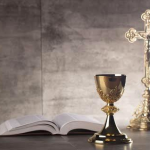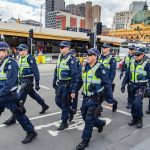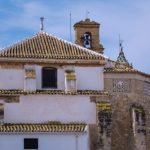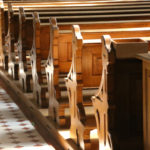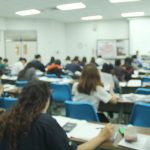Transformation Through Telling: An Interview Ngikalikarra Media’s Alexander Hayes
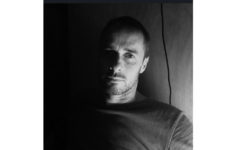
The Church of England Boys’ Society was an outreach program of the Anglican Church that involved adults running weekly meetings and weekend activities for young members of the faith. The organisation was at its height during the 1970s and 80s.
Around that time, one of its lay leaders, William “Adrian” Sandwell, was sexually abusing young boys. And for these historic child sex offences, Mr Sandwell was sentenced in late June to 6 years imprisonment, with a non-parole 3 years and 7 months.
A Downing Centre District Court jury found Sandwell guilty of eleven child sexual assault offences, committed against six children over the mid-60s to the mid-80s. And unsurprisingly, his actions have gravely impacted the boys involved, some of whom have taken their own lives.
Alexander Hayes is one of the survivors, who gave evidence during the trial. He believes that many more boys would have been assaulted by Sandwell. And for Hayes, speaking his truth was a transformative experience.
A shift takes place
Let Them Speak is a documentary about four Aboriginal sisters from the Western Australian town of Leonora speaking out about the sexual abuse they were subjected to as children. The Wongi women tell how intergenerational child abuse has impacted upon their lives.
The four women – who produced the documentary – told their stories to encourage others to speak out. “If we can save one or two people with our stories, that will make us happy,” Jillian Heneker, one of the sisters, has said. “I am proud of my sisters for doing it,”
The documentary was filmed and edited by Ngikalikarra Media: a partnership between Mr Hayes and French filmmaker Magali McDuffie. And it has a focus on enabling First Nations peoples to tell their stories.
As Hayes relates, listening is key to the way Ngikalikarra Media operates. And through his experience in the courtroom, along with the process of making his films, he’s come to realise that the telling of one’s own story leads to personal change.
A voice for those not afforded one
Alexander Hayes is a Scottish Australian man, whose been working with First Nations communities across the continent in the capacity of an educator and filmmaker for the last quarter century. His focus is on social justice and human rights, especially for those misrepresented and underreported.
Sydney Criminal Lawyers spoke with Mr Hayes about the way Sandwell’s trial came about, the process Ngikalikarra goes through whilst making a documentary, and why the telling of one’s story implicitly involves transformation.
Firstly, you were recently involved in proceedings that saw former Church of England Boy’s Society lay leader Adrian Sandwell sent to prison over child abuse crimes from the mid-60s through to the mid-80s. Alexander was this a case you instigated?
It is a case I instigated. It’s been a 39 year long journey, since the last point of abuse. When I spoke forward with my story, a further twelve survivors came forward and also presented their cases. And of those survivors, they sustained a further seven charges relating to themselves.
So, in total, there were 20 key people who came forward as witnesses. Twelve who provided evidence. And of those twelve, there were nine of us who presented to the court and gave visual and auditory evidence to the judge.
The trial went for six and half weeks. And it was a closed court. The whole case with the detectives was three and a half years. And it compiled evidence similar to the Pell trial. It was of that sort of magnitude.
Adrian Sandwell had been reported in 1991, 2002 and 2011. His name appears in all of the Hansards of the Royal Commission notes into the Church of England Boys’ Society, which has been disbanded and labelled as a prime paedophile ring.
Adrian Sandwell was the principal structural leader for the Church of England Boys’ Society on a national level. So, it’s quite likely that he offended against hundreds of different children across the nation. And in speaking my story and coming forward it revealed twenty.
Unfortunately, a number of individuals have suicided or passed away as a result of Adrian’s actions. And they are known and recorded as being victims of crime.
Did this case arise out of the Royal Commission?
No, it didn’t. I wrote a book at the end of 2014. It was a book about my life. And I published it openly through Facebook. I got a lot of contention from people. And I was encouraged to take my story to the Australian federal police, which I did.
The AFP then took it through to the state jurisdiction and they had to then extradite a number of people. They interviewed people all around the world. There were more than 200 witnesses interviewed. And at the same time, I decided to send my book to the Royal Commission. And it provided me with a letter of recognition.
The Royal Commission then included my book in their terms of reference. They were no longer hearing physical cases, because there were so many. The commission had run its full term. But, my case is registered as a Royal Commission case too.
So, you detailed your experiences over the social media platform and that led to the investigation?
That’s correct. I used the social media mechanism to be able to muster up the energy and garner the strength to punch through to a criminal trial. I had it explained to me very early on, that if I stated names of other people, I’d be done with slander. So, my account only involves my own life.
Then it was explained to me that if I was to take it forward through to a criminal trial that I would be offered compensation. And if I received compensation, then I would be required to sign a non-disclosure agreement. And it was unlikely that the case would go through a criminal jurisdiction.
What I chose to do was not receive any funding from the Anglican Church, who did offer me the top dollar to be quiet. And I went through to the police and reported the full case. It took four and a half weeks of talking with them. And from there, I understood that the church had been in contact with the police as well and that it would proceed to a criminal investigation.
And they gave me a year. That’s pretty normal. They usually give you a year to make up your mind on whether you will press charges. And I continued to pursue criminal proceedings.
Eventually, after many different contacts with police and detectives, I understood that there were also 20 other people that had come forward.
In doing that, some of the other people are unable to make themselves public about their case. They’re happy that I am the face of it. And at the same time, as I’ve explained to them, I will never speak on their behalf. If they wish to speak, they will do so of their own accord, with whomever they wish.
What I am more interested in doing is highlighting the following: I was given an amazing affordance as a person, which First Nations peoples and other people in our communities are not afforded. That is because I was listened to. My case was followed through. It was taken to the highest level of legal jurisdiction and was provided with Crown prosecution and support.
Since I’ve spoken my story publicly, I’ve had many people from those communities come forward and share their stories with me. And what I understand is that they are not afforded the same listening. They’re not afforded the same representation. And they certainly do not secure the same sorts of convictions as I was seeking.
The only thing that I ever wanted out of all of this was the opportunity to stand in a court of law and speak my victim impact statement. That was the principal thing that I wanted to achieve. And obviously, for the offender to be incarcerated as well. But, I was not after money or compensation.
I don’t need that money. I need to see that these things are done right in the community.
So, what sort of impact has the abuse had on your life? And what was it like to be able to go to court and tell your story?
It basically changed my whole world. It allowed me to understand fully the actions – or lack of actions – that had occurred from institutional representatives, including members of the clergy, ministers and lay preachers directly, who I did take my story to and was told to be quiet or else I would get in trouble.
There were my parents, who simply disbelieved. And they too are victims of this person. I see them as being victims of this whole crime. They are not to blame. They have suffered. But, as my moral police, my parents, when I told my story at 15, 19 and 22, should have gone forward to the legal jurisdiction and shut this down.
What it’s done is it’s sharpened me up. That’s basically one way to explain it. It sharpened me up to what occurs within our communities. And it shattered the way that I could express my emotions with other people.
I became a very angry person as a teenager. And in my 20s and 30s, I made the choice to live a better life. But, I was very fearful and repeatedly reminded by others around me that if you speak your truth regarding sexual assault in this society, you will be labelled as a victim. And a victim is a person who falls foul of their own story.
What I refer to it as is being a survivor – somebody who is doing well and doing something with that story. The feedback from different people has been not only were you brave enough to go forward and say something, but it took a great deal of courage to continue to go through that trial process, to continue to speak your truth with other people and to have the conviction to see this through to the other side. And most importantly, I didn’t suicide before I got on the stand.
I was reminded of that by the detectives. They said, “We’ve taken four people through this whole process before. And not one of them has gotten to the stand. It is not that you’re disbelieved. But, we have to prove this person is guilty. And until such time as he is proven guilty, you have to prove your own innocence.”
I had to prove my own innocence. And that was the biggest learning of all. I had to prove that I was innocent. I had to prove to myself that I was not a person who had instigated any of this. That I was to be believed and that my story could be corroborated.
Today, you run Ngikalikarra Media.
Ngikalikarra means listening with both ears – listening carefully. What happened is my Kooya, my Aboriginal mother said to me, “It’s okay, son.” And I said, “Son?” And she said, “Yes, I can be your Kooya. I can be your mother. Because mothers protect their children.”
I said, “Yes. That’s true.” And she said, “What you’ve got to do is Ngikalikarra: you’ve got to listen.” I said, “How do you spell that?” And she told me.
Ngikalikarra is a Nyikina term. Nyikina are one of the Kimberley mob. And she said, “Ngikalikarra is the term you use when you put yourself out there. If you are engaging in our community, your name is Malkay. That is what we will call you. And what you are doing as business is listening.”
The Nyikina communities of the Kimberley region, include traditional custodians Lucy Marshall OA, Jeannie Warbie and Dr Anne Poelina. They are fighting a battle against the fracking and misappropriation of water resources on their country.
We are documentary filmmakers. We have a lot of film in relation to really contentious matters, such as native title, law, sexual assault and suicide. And we are gifted by that. We are very lucky. My partner and I have had that affordance.
So, Ngikalikarra Media is a documentary filmmaking venture that involves First Nations peoples’ stories as a social justice and human rights vehicle. Can you expand on that?
We engage with most mobs across Australia in different ways. The very first thing that we have declared openly is that we deal with listening first and we take a side. It’s a very important distinction.
We listen very carefully for long periods of time to an issue. Then we take a side. And it is usually the side of the people, who are not being represented in popular media. And it is usually the side of the people who are not receiving the funding from native title. It’s usually the people who are being persecuted by others and are in the depths of despair in their lives.
They need their voice to be heard. And they’re the people that we generally say, “Would you like to engage with us? And would you like to be the producer of something in a media format for us to put out together?”
And they generally are the producer of the work. We are simply the editors. And we are simply the facilitators for that to occur. We shoot as a filmmaker. But, they sit with us and we edit together. We always have done that. It’s always approved their way.
And what have you been working on of late?
We’ve been working with the Ngalla Maya Corporation, which is in Belmont in Perth. We’ve been engaging with them around suicide prevention and trauma recovery. We’ve also been working with Gerry Georgatos, who’s a social rights campaigner and human rights activist.
We’ve been working with the Adnyamathanha people, including Uncle Vince Coulthard, of the Flinders Ranges and greater regions of South Australia fighting the state and federal governments’ push for a world scale uranium dump on their country.
We’ve worked with the Bunjalung people of the Gold Coast and greater regions of northern NSW and southern Queensland, including Aunty Jackie McDonald and Aunty Joyce Summers
They’re fighting unprecedented levels of corrupt development and issues such as extensions of airport runways, as well as proven carcinogenic fire retardant from simulated industry fire practice drills killing off whole sections of natural coastal swampland.
We’ve worked with the Kimberley Nyikina repeatedly around native title, the invasions of communities and the predation of mining companies through and facilitated by certain organisations in those environments, who are, as others are saying, facilitating genocide in communities.
The UN special rapporteur has actually visited the Kimberley and said that genocide is occurring in communities, where people were being bulldozed from their houses. We’ve documented on film people being bulldozed with children still running around the equipment, while its in operation.
So, we’ve seen some pretty disastrous stuff. But, most importantly, we also have recorded the stories of the Agricultural Protection Board spraying 2,4,5-T Agent Orange across the Kimberley region in the 80s and 90s. We recorded 41 interviews. It’s been tabled in parliament. The government will be up for billions in compensation if it’s further substantiated.
There are many civil and criminal cases running in relation to what we shot in those 41 interviews, with families and individuals who have lost loved ones due to that particular issue.
And we’ve recorded, of course, and listened to, stories of sexual assault.
You see a link between what you’re doing with your media company, and what you experienced through your court case. What is that link?
That’s about being listened to. The most important thing – when we have a story, and everyone has one – is not about being believed, it’s actually about being heard. So, by providing the opportunity to listen carefully with other people, we also get an emancipation in our own life.
And I don’t put it together that I’m doing this because of what occurred to me. But, I’m saying through the process, I discovered that I had the strength to start speaking out about my own story.
When I spoke out about my own story, I knew it was going to collapse my family. I knew all of my professional colleagues were likely to be silenced. They were. Many of them actually indicated to me that I was conducting professional suicide. And by speaking openly and publicly about my experience as an individual, I would lose my job. And I did.
And I was told that most likely I would be kicked out of my PhD program. But, guess what happened? I wasn’t. Because my supervisor listened carefully and said, “What you are doing is not causal agency for the way that you live your life. What you are doing at the moment is growing and doing something as a PhD candidate.”
The two are only linked as listening to other people. And that’s why I said to you, this isn’t actually my story. I am just the catalyst for the listening of other people.
There are many other people when I stood in that courtroom that were not represented. And the reason being is because they are dead. They suicided before they were actually able to get to the court. I didn’t stand in court for them. I stood in court for me to speak my story, but in doing so it revealed some pretty disastrous stuff that occurred across the Sutherland Shire.
The Sutherland Shire is a hotbed for paedophilic activity through those particular church organisations that have been named. And those church organisations actually published information on the internet and then retracted it, when they realised, they were even more complicit by what they were saying to their congregations around Adrian Sandwell.
And that individual was on Dharawal country of the Eora nation. That area is peppered with sexual assault claims. And unfortunately, are continuing to happen.
So, what sort of transformative process do you see the people who you’re making the documentary films about go through in telling their stories?
When they see their own stories, it really is an emancipation in some instances. And for some people it’s an absolutely cathartic rendering of their life. And they see fall out. Massive amounts of contention occur by speaking forward their story.
For some people, it’s extremely contentious. And it figuratively reconfigures their life and their relationships. It completely shifts the way they relate to other people in good, different and bad ways as well.
And lastly, Alexander, you’ve had your recent court victory, what’s next for you?
I just need to hand in a PhD that has everything to do with where humanity is heading in terms of social media and the predation of surveillance. That’s one side of it.
The other part is in terms of media, speaking and listening. It’s about enabling other people within the criminal justice system – and within the social justice realm – to be able to speak forward their story and have their cases followed through.
Sexual assault is at a cataclysmic level. And me being allowed to speak my story has certainly had a colossal impact on my life. But, it’s also impacted the people that have to remain silent, because they know if they say something their whole life will change too.
It’s about encouraging people to have the courage to step forward, knowing that they’re going to be listened to, and ensuring that the criminal justice system can be in itself a construct for realising emancipation in real life.


